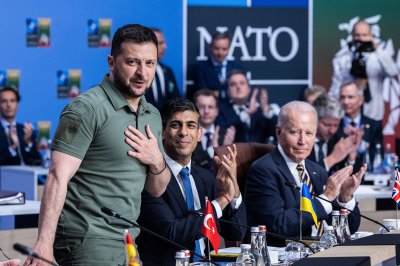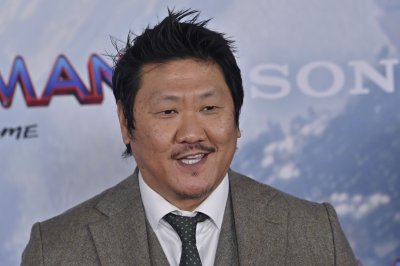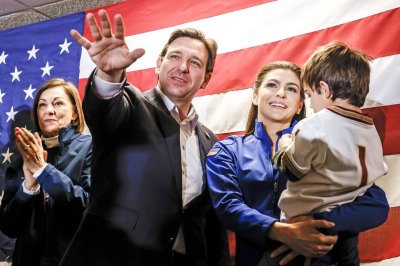Topic: Winston Churchill
Quotes
The duty of government is first and foremost to be practical. I am for makeshifts and expediency. ... I would not sacrifice my own generation to a principle
Free-market orthodoxy will doom U.S. industrial base Dec 23, 2008
We have no lasting friends, no lasting enemies, only lasting interests
Analysis: What is happening in Syria? Oct 06, 2008
It is no use saying, 'We are doing our best.' You have got to succeed in doing what is necessary
The almanac Mar 05, 2008
It has been said that democracy is the worst form of government except all the others that have been tried
Atlantic Eye: Voting, thuggery and fraud Dec 26, 2007
It is no use saying, 'We are doing our best.' You have got to succeed in doing what is necessary
The Almanac Mar 05, 2007
Sir Winston Leonard Spencer-Churchill, KG, OM, CH, TD, PC, DL, FRS (30 November 1874 – 24 January 1965) was a British politician and statesman known for his leadership of the United Kingdom during the Second World War (WWII). He is widely regarded as one of the great wartime leaders. He served as Prime Minister twice (1940–45 and 1951–55). A noted statesman and orator, Churchill was also an officer in the British Army, a historian, a writer, and an artist. To date, he is the only British prime minister to have received the Nobel Prize in Literature, and he was the first person created an honorary citizen of the United States.
Churchill was born into the aristocratic family of the Dukes of Marlborough. His father, Lord Randolph Churchill, was a charismatic politician who served as Chancellor of the Exchequer; his mother, Jenny Jerome, an American socialite. As a young army officer, he saw action in British India, the Sudan and the Second Boer War. He gained fame as a war correspondent and through books he wrote about his campaigns.
At the forefront of politics for fifty years, he held many political and cabinet positions. Before WWI, he served as President of the Board of Trade, Home Secretary and First Lord of the Admiralty as part of the Asquith Liberal government. During the war, he continued as First Lord of the Admiralty until the disastrous Gallipoli Campaign, which he had sponsored, caused his departure from government. He then served briefly on the Western Front, commanding the 6th Battalion of the Royal Scots Fusiliers. He returned to government as Minister of Munitions, Secretary of State for War, and Secretary of State for Air. After the War, Churchill served as Chancellor of the Exchequer in the Conservative (Baldwin) government of 1924–29, controversially returning the pound sterling in 1925 to the gold standard at its pre-War parity, a move widely seen as creating deflationary pressure on the UK economy. Also controversial were Churchill's opposition to increased home rule for India, and his resistance to the 1936 abdication of Edward VIII.
It uses material from the Wikipedia article "Winston Churchill."














